The Science Behind Supplements and Herbs for Better Sleep
Sleep is essential for our physical and mental well-being, yet insomnia affects millions of people worldwide. While conventional sleep medications can be effective, they often come with unwanted side effects and the risk of dependency. As a result, many individuals are turning to natural alternatives to improve their sleep quality. This comprehensive guide examines the scientific evidence behind various supplements and herbs that may help address insomnia, providing insights into their effectiveness, mechanisms of action, and safety considerations.
Understanding Insomnia
Insomnia is characterized by difficulty falling asleep, staying asleep, or both, resulting in inadequate or poor-quality sleep. It’s estimated that approximately 20% of adults experience occasional insomnia symptoms. This sleep disorder can be acute (short-term) or chronic (long-term), and it can significantly impact quality of life, productivity, mood, and overall health.
The causes of insomnia are diverse and may include stress, anxiety, depression, medical conditions, medications, poor sleep habits, and environmental factors. While conventional treatments typically include cognitive behavioral therapy for insomnia (CBT-I) and prescription medications, many people seek natural alternatives due to concerns about side effects, dependency, or personal preferences for holistic approaches.
Evidence-Based Supplements for Insomnia
Melatonin
Melatonin is a hormone naturally produced by the pineal gland in the brain that helps regulate the sleep-wake cycle. As a supplement, it has become one of the most widely used natural sleep aids.
Research supports melatonin’s effectiveness for certain sleep disorders. A 2022 study of older adults found that melatonin supplements improved both daytime and nighttime sleep. It has also shown efficacy for people experiencing jet lag and those with disrupted circadian rhythms.
Melatonin appears to work by signaling to the brain that it’s time to sleep, helping to regulate the body’s internal clock. It’s typically taken 1-2 hours before bedtime, with dosages ranging from 0.5-5 mg, though starting with lower doses is generally recommended.
For more information about melatonin’s effects on sleep and proper usage, check out the comprehensive guide to sleep supplements.
Valerian Root
Valerian (Valeriana officinalis) is an herbal sleep aid derived from the roots and stems of the valerian plant. It has been used for centuries as a natural remedy for insomnia and anxiety.
Scientific research on valerian shows mixed but promising results. A literature review found that certain supplements, particularly valerian, could be effective in improving sleep quality and reducing insomnia symptoms through modulation of neurotransmitter systems. Specific studies have shown benefits for certain populations:
- Menopausal and postmenopausal women have seen their sleep quality and sleep disorder symptoms improve after taking valerian, according to a 2018 research review.
- A study found that taking 530 mg of valerian per night for 30 days led to significant improvements in sleep quality, latency, and duration compared with a placebo in people who had undergone heart surgery.
- A 2021 study in 39 people undergoing hemodialysis found that taking 530 mg of valerian root before bed for 1 month improved sleep quality, anxiety, and depression compared with a placebo.
Valerian appears to work by increasing levels of gamma-aminobutyric acid (GABA), a neurotransmitter that inhibits excessive brain activity and promotes relaxation. Typical dosages range from 300-900 mg taken 30-60 minutes before bedtime.
It’s worth noting that valerian’s sedative effects can linger, sometimes causing morning drowsiness. People should not drive or operate machinery after taking valerian, and they should not combine valerian with alcohol or sedative medications.
For detailed information about valerian’s applications for sleep and mental health, visit the guide to herbal sleep remedies.
Magnesium
Magnesium is an essential mineral involved in hundreds of biochemical reactions in the body, including those related to muscle relaxation and nervous system function. Deficiencies in magnesium have been linked to sleep problems, making it a potential natural remedy for insomnia.
Research suggests that magnesium supplementation may improve sleep quality and reduce insomnia severity. A systematic review examining the effects of supplemental magnesium on self-reported anxiety and sleep quality found promising results, though more research is needed.
Magnesium appears to promote sleep by regulating neurotransmitters that calm the mind and body, as well as by regulating the hormone melatonin. It also binds to gamma-aminobutyric acid (GABA) receptors, which has a calming effect on the nervous system.
Typical dosages range from 200-400 mg taken before bedtime. Various forms of magnesium supplements exist, including magnesium oxide, citrate, glycinate, and chloride, with magnesium glycinate often recommended for sleep due to its high absorption rate and minimal gastrointestinal side effects.
For more information about magnesium’s role in sleep and mental health, explore the comprehensive guide to magnesium.
Glycine
Glycine is an amino acid that plays a role in nervous system function and has been studied for its potential sleep-promoting effects. As a supplement, glycine shows promise for improving sleep quality and reducing daytime sleepiness.
Recent research has shown that taking a small dose of supplemental glycine before bed may improve sleep quality and reduce daytime sleepiness in people with insomnia symptoms. Evidence suggests that glycine supplements benefit sleep by supporting the circadian rhythms involved in sleep, facilitating a slight drop in body temperature—a physical change associated with falling asleep and staying asleep.
Doses as low as 3 grams taken before bedtime have shown benefits, with few reported side effects even at higher doses (up to 30 grams daily).
L-Theanine
L-theanine is an amino acid found naturally in tea leaves, particularly green tea. It has gained attention for its potential to promote relaxation without causing drowsiness, which may benefit those with insomnia.
Research indicates that L-theanine may help reduce anxiety and improve sleep quality by promoting relaxation and reducing resting heart rate. It appears to work by increasing levels of GABA, serotonin, and dopamine—neurotransmitters that regulate emotions, mood, and sleep—while also reducing levels of excitatory brain chemicals linked to stress and anxiety.
Typical dosages range from 200-400 mg taken before bedtime. L-theanine is generally well-tolerated with minimal side effects, making it an attractive option for those seeking natural sleep support.
For more information about L-theanine and its benefits for sleep and mental health, check out the guide to L-theanine and green tea.
Herbal Remedies for Insomnia
Chamomile
Chamomile (Matricaria recutita) is one of the most widely used herbal remedies for sleep and relaxation. Traditionally consumed as a tea, chamomile has mild sedative effects that may help induce sleep and calm nerves.
While clinical research on chamomile for insomnia is limited, some studies suggest it may improve sleep quality. Chamomile appears to work through compounds like apigenin, which bind to benzodiazepine receptors in the brain, producing a mild sedative effect.
Chamomile is typically consumed as a tea (using 2-3 teaspoons of dried herb per cup of hot water) 30-45 minutes before bedtime. For those who find the taste unpleasant, chamomile is also available in supplement form.
Lavender
Lavender (Lavandula angustifolia) is well-known for its calming aroma and potential sleep-promoting effects. It can be used in various forms, including essential oils for aromatherapy, teas, and oral supplements.
A 2020 review of nine studies found evidence that lavender essential oil may have benefits as a complementary therapy for mild or moderate insomnia. A 2021 review of past research reached similar conclusions, though both noted the need for more rigorous studies with larger participant groups.
Lavender appears to work by affecting neurotransmitters in ways that calm the nervous system and promote relaxation. For aromatherapy use, adding a few drops of lavender essential oil to a diffuser or pillow, or taking a warm bath with lavender oil added, may help induce sleep. For oral supplementation, products containing standardized lavender oil should be used according to package directions.
It’s worth noting that lavender can make people sleepy, so caution should be exercised when driving or operating machinery after use. Additionally, lavender may interact with certain medications, so consultation with a healthcare provider is recommended.
Passionflower
Passionflower (Passiflora incarnata), also known as maypop, is a traditional herbal remedy for insomnia that is native to North America and now cultivated worldwide.
While the sleep-promoting effects of passionflower have been demonstrated in animal studies, more research is needed to fully establish its efficacy in humans. An older study in humans compared the effects of a passionflower tea with those of a placebo tea, with participants drinking each tea about one hour before bed for a period of one week. Researchers took objective measurements of sleep quality and found some benefits with passionflower.
Passionflower is thought to work by increasing GABA levels in the brain, producing a calming effect. It is commonly consumed as a tea (1-2 teaspoons of dried herb per cup of hot water) or taken as a supplement (typically 300-400 mg before bedtime).
Hops
Hops (Humulus lupulus) are perhaps best known as an ingredient in beer, but they also have a long history of use as a sleep aid. Often combined with valerian, hops may help improve sleep quality in those with insomnia.
A literature review suggests that certain supplements, particularly combinations of valerian and hops, could be effective in improving sleep quality and reducing insomnia symptoms. Hops appear to work by increasing GABA activity in the brain, promoting relaxation and sleep.
Hops can be consumed as a tea, taken in supplement form, or used in aromatherapy. When combined with valerian, typical dosages are based on the valerian content (usually 300-600 mg), with a standardized amount of hops extract added.
Kava
Kava (Piper methysticum) originates in the Pacific Polynesian Islands and has been traditionally used as an herbal medicine to treat insomnia and anxiety since the 18th century.
Research suggests that kava may be effective for anxiety-related insomnia. A small, older study showed relief of insomnia after 14 days of kava use, though the subjective nature of the sleep quality assessments used makes it difficult to draw firm conclusions.
Kava appears to work by affecting GABA and other neurotransmitters in the brain, producing sedative, anxiolytic, and muscle relaxant effects. However, there are important safety concerns with kava use.
The FDA has advised consumers about the potential risk of severe liver injury from using supplements containing kava. Additionally, kava can impact other medicines metabolized by the liver. Due to these concerns, kava should only be used under the guidance of a healthcare provider, if at all.
Lemon Balm
Lemon balm (Melissa officinalis) has been used since the Middle Ages for anxiety and insomnia. It is often combined with other herbs to enhance its calming effects.
In vitro studies have suggested that lemon balm is effective by acting as a GABA agonist. For insomnia and anxiety, one effective dose of a lemon balm extract is 300 mg twice daily for 15 days, according to some research.
Lemon balm is available as a dried herb for tea (¼ to 1 teaspoon per cup of hot water), in extracts and tinctures (up to 60 drops daily), or in capsule form (300-500 mg up to three times a day).
Other Natural Sleep Supporters
Tryptophan and 5-HTP
Tryptophan is an essential amino acid that serves as a precursor to serotonin and melatonin, neurotransmitters involved in mood regulation and sleep. 5-HTP (5-hydroxytryptophan) is a compound produced in the body from tryptophan, which is then converted into serotonin.
Both tryptophan and 5-HTP have been studied for their potential to improve sleep quality and reduce the time it takes to fall asleep. They appear to work by increasing the synthesis of serotonin and melatonin, which play key roles in regulating the sleep-wake cycle.
Typical dosages range from 500-1,000 mg for tryptophan and 50-200 mg for 5-HTP, taken 30-60 minutes before bedtime. These supplements should not be combined with antidepressants or other medications that affect serotonin levels without medical supervision, as they can cause a potentially dangerous condition called serotonin syndrome.
Cherry Juice
Tart cherry juice, particularly from the Montmorency cherry (Prunus cerasus), has gained attention for its potential sleep-promoting properties. Cherries are one of the few natural food sources of melatonin, the hormone that regulates sleep.
Research on tart cherry juice for insomnia is limited but promising. Some studies suggest that consuming tart cherry juice before bedtime may improve sleep duration and quality. The juice appears to work primarily through its melatonin content, though it also contains other compounds that may contribute to its sleep-promoting effects.
Typical usage involves drinking 8-16 ounces of tart cherry juice or concentrate about 1-2 hours before bedtime.
Zinc
Zinc is an essential mineral involved in numerous biochemical processes in the body, including those related to brain function and sleep regulation. Some research suggests a relationship between zinc levels and sleep quality.
Evidence from randomized controlled trials suggests that zinc supplementation may improve sleep quality and reduce insomnia severity in individuals with sleep disturbances, such as shift-work disorder and age-related insomnia. While generally well-tolerated at recommended doses, high doses of zinc can cause adverse effects, so individuals should consult their healthcare providers before using zinc supplements.
The mechanism by which zinc affects sleep is not fully understood, but it may involve regulation of neurotransmitters and the sleep-wake cycle. Further research is needed to establish the optimal dose and formulation of zinc for insomnia treatment.
Mind-Body Approaches for Insomnia
Mindfulness Meditation
Mindfulness meditation practices have gained scientific support for their benefits on sleep quality. By promoting relaxation and reducing the rumination and worry that often contribute to insomnia, mindfulness techniques can help prepare the mind and body for restful sleep.
A 2023 review found that meditation-based therapies for sleep disorders show a relatively consistent small-to-moderate effect in children and adolescents, despite some limitations in the research methodology. For adults, multiple studies have demonstrated improvements in sleep quality, reduced time to fall asleep, and decreased night-time awakening with regular mindfulness practice.
Basic mindfulness techniques for sleep include body scan meditation, breathing awareness, and guided imagery. Even short practices of 10-15 minutes before bedtime may help improve sleep quality when done consistently.
Yoga
Yoga combines physical postures, breathwork, and meditation techniques that may collectively benefit those with insomnia. The gentle movement, relaxation, and stress reduction aspects of yoga make it a promising natural approach to improving sleep.
A 2023 systematic review of 10 studies evaluating yoga and meditation for sleep found that these practices positively affected various sleep parameters, including sleep quality and duration. The authors suggested that yoga or meditation may help supplement conventional treatment and improve quality of life, though they noted the need for more extensive research with larger participant groups.
Specific yoga practices for sleep often focus on gentle, restorative poses held for longer periods, combined with slow, deep breathing. Evening yoga routines designed specifically for sleep preparation may be particularly beneficial.
Creating a Comprehensive Sleep Strategy
While individual supplements and herbs may offer benefits for insomnia, combining multiple approaches often yields the best results. A comprehensive sleep strategy might include:
Sleep Hygiene Practices
Sleep hygiene refers to habits and practices that promote quality sleep. Key components include:
- Maintaining a consistent sleep schedule
- Creating a restful sleep environment (dark, quiet, cool)
- Limiting screen time before bed
- Avoiding caffeine, alcohol, and large meals close to bedtime
- Engaging in regular physical activity (but not too close to bedtime)
These fundamental practices form the foundation of any natural approach to improving sleep.
Personalized Supplement Regimen
Based on individual needs and responses, a personalized supplement regimen might include one or more of the following:
- A primary sleep-promoting herb like valerian or chamomile
- Melatonin for circadian rhythm regulation
- Magnesium for muscle relaxation and nervous system support
- Supporting nutrients like B vitamins or zinc
Working with a healthcare provider knowledgeable about both conventional and natural approaches can help develop a safe and effective supplement strategy.
Mind-Body Practices
Incorporating regular mind-body practices can address the stress and anxiety that often underlie insomnia:
- A 10-15 minute meditation practice before bed
- Gentle yoga poses in the evening
- Deep breathing exercises as part of a bedtime routine
- Progressive muscle relaxation to release physical tension
These practices complement other natural approaches by addressing the mental and emotional aspects of insomnia.
Safety Considerations and Professional Guidance
While natural approaches to insomnia can be effective, several important considerations should guide their use:
- Quality and Purity: The quality and purity of supplements vary widely due to limited regulation. Choose products from reputable manufacturers that undergo third-party testing.
- Potential Interactions: Herbal supplements can interact with medications. For example, valerian and kava may enhance the effects of sedatives and anti-anxiety medications. Always consult with a healthcare provider before combining supplements with prescription drugs.
- Individual Sensitivity: Responses to natural sleep aids vary greatly between individuals. What works well for one person may cause side effects or be ineffective for another.
- Underlying Conditions: Insomnia can be a symptom of various medical conditions, including sleep apnea, restless leg syndrome, depression, and anxiety disorders. Addressing these underlying conditions is essential for effective treatment.
- Pregnancy and Breastfeeding: Many herbs and supplements have not been adequately studied in pregnant or breastfeeding women. Caution is advised, and medical consultation is essential.
- Proper Timing and Dosage: For optimal results, follow evidence-based recommendations for timing and dosage. For instance, melatonin is most effective when taken 1-2 hours before bedtime, while valerian may need to be taken for several weeks before full benefits are realized.
Conclusion
Natural remedies for insomnia offer promising alternatives or complements to conventional treatments. Evidence suggests that certain supplements, particularly valerian, hops, and melatonin, could be effective in improving sleep quality and reducing insomnia symptoms through modulation of neurotransmitter systems and regulation of sleep-wake cycles.
However, the strength of the evidence varies, with unestablished optimal dosages, formulations, and treatment durations for many natural sleep aids. Although generally considered safe, these supplements are not without risks, such as rare but serious adverse effects associated with kava and potential interactions with prescription medications.
For those interested in exploring natural approaches to insomnia, working with healthcare providers knowledgeable about both conventional and natural medicine is recommended. A personalized approach that combines evidence-based supplements with sleep hygiene practices and mind-body techniques offers the most comprehensive strategy for addressing sleep difficulties.
For more information about natural approaches to mental health, including insomnia, visit the Dictionary of Supplements and Herbs for Mental Health, which provides detailed information on various natural remedies and their applications for sleep and well-being.
For more information on supplemens for mental health consult our comprehensive guide for micronutrient and supplement therapy and how it can treat specific issues and enhance certain modalities of therapy.
If you’re interested in exploring micronutrient therapy as part of your anxiety treatment plan, Hardy Nutritionals offers a range of products to fit your specific needs. Their Daily Essential Nutrients clinical strength formula provides comprehensive, research-backed dosages in convenient capsule or powder form.
For 15% off in savings, use the offer code “Taproot” at checkout on the Hardy Nutritionals website to receive 15% off your order. @ GetHardy.com
It’s important to remember that while micronutrient therapy can be a powerful tool for managing anxiety, it is not a replacement for professional mental health care. Always consult with a qualified healthcare provider before starting any new supplement regimen, particularly if you have pre-existing health conditions or are taking medications.
Disclaimer: These statements have not been evaluated by the Food and Drug Administration. These products are not intended to diagnose, treat, cure, or prevent any disease. Please consult with a qualified healthcare professional before beginning any supplement regimen, particularly if you are pregnant, nursing, have a medical condition, or are taking medications. The information on this website doesnot constitute medical advice. We recieve a small commision on sales with Hardy Nutritionals through our offer code. Our affiliation does not effect treatment or recomendations made by Taproot authors, therapists or other staff.
Bibliography
- Ali, R., et al. (2021). Nutraceuticals for Sleep Disorders. Combinatorial Chemistry & High Throughput Screening, 24(10):1583-1592.
- Babson, K. A., Sottile, J., & Morabito, D. (2017). Cannabis, cannabinoids, and sleep: A review of the literature. Current Psychiatry Reports, 19(4), 23.
- Baena, L. S., et al. (2021). Effects of Mind-Body Therapies on Sleep Quality in Adults with Mental Health Concerns: A Meta-Analysis of Randomized Controlled Trials. International Journal of Environmental Research and Public Health, 18(14):7649.
- Gamaldo, C. (2024). Natural Sleep Aids: Home Remedies to Help You Sleep. Johns Hopkins Medicine.
- Herbal and Natural Supplements for Improving Sleep: A Literature Review. (2024). Psychiatry Investigation, 21(8):810-821.
- Jacobs, B.P., et al. (2005). An internet-based randomized, placebo-controlled trial of kava and valerian for anxiety and insomnia. Medicine (Baltimore), 84(4):197-207.
- Mah, J., & Pitre, T. (2021). Oral magnesium supplementation for insomnia in older adults: a Systematic Review & Meta-Analysis. BMC Complementary Medicine and Therapies, 21(1):125.
- Morin, C.M., et al. (2005). Valerian-hops combination and diphenhydramine for treating insomnia: a randomized placebo-controlled clinical trial. Sleep, 28(11):1465-71.
- Rawji, A., et al. (2024). Examining the Effects of Supplemental Magnesium on Self-Reported Anxiety and Sleep Quality: A Systematic Review. Cureus, 16(4)




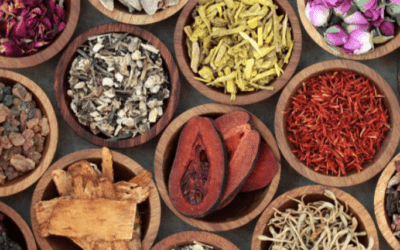

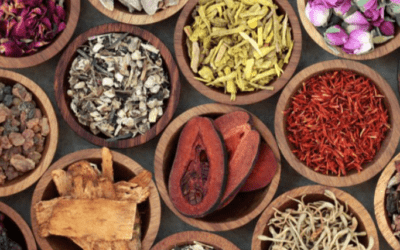
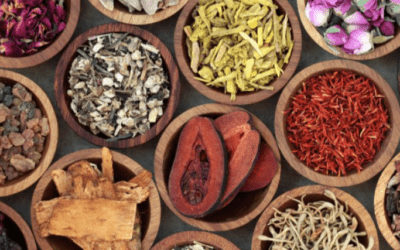









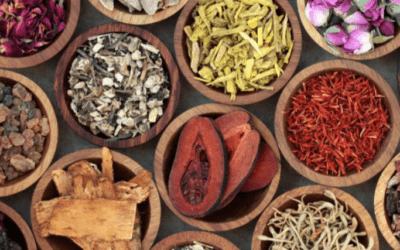





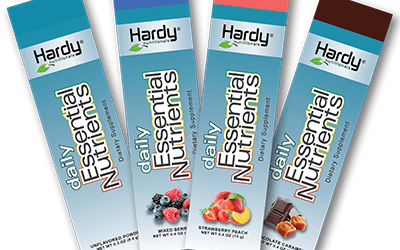

0 Comments